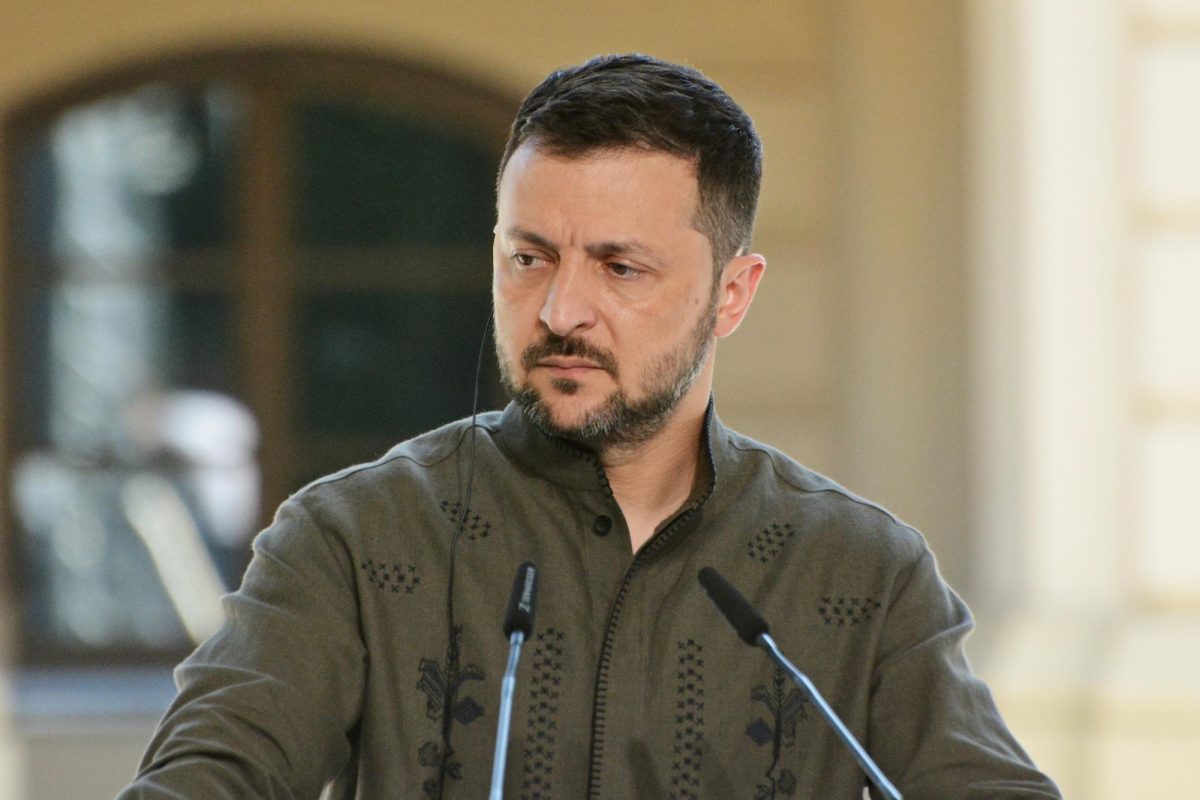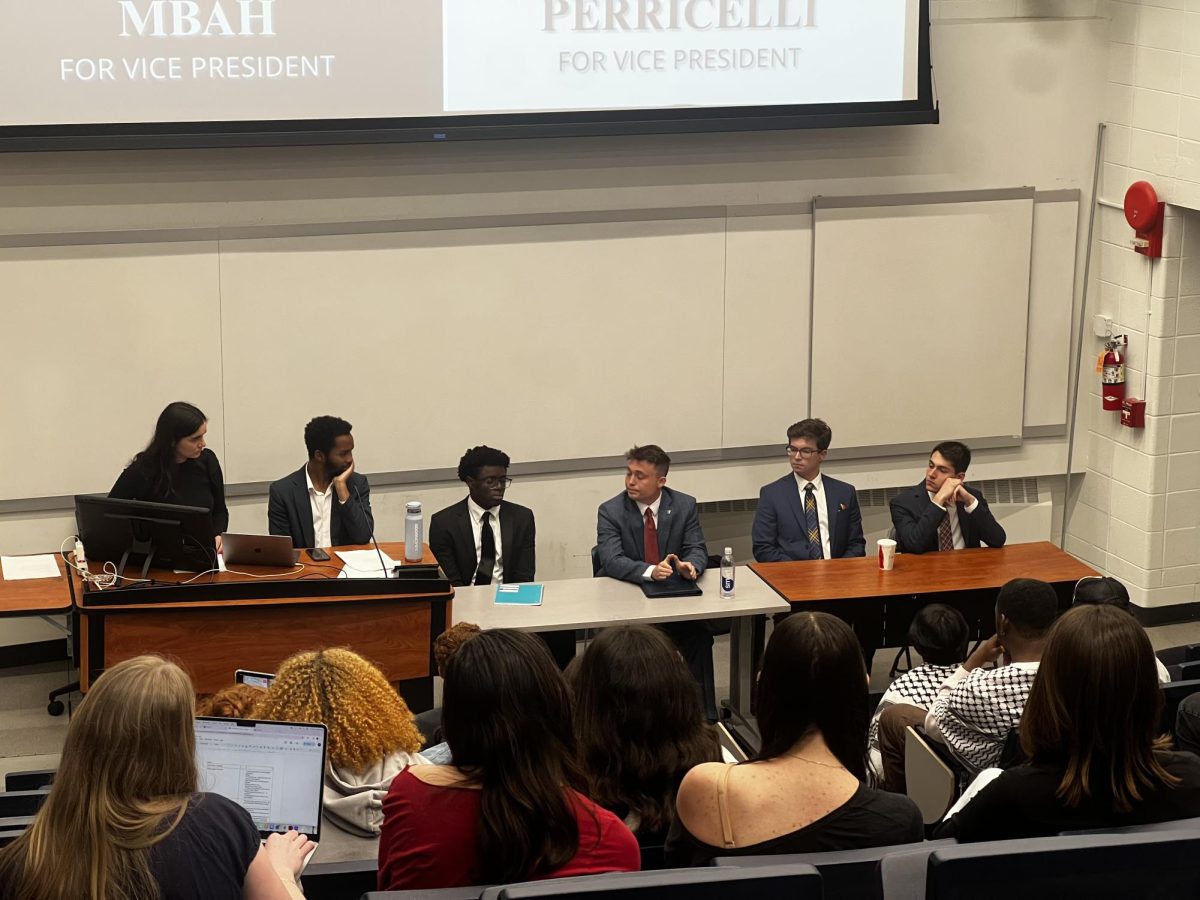This past week was one marked by political uncertainty. Relations soured in the international community, a tenured Congressman announced his retirement and there was a significant judicial decision that checked President Donald Trump’s agenda. All of these developments underscore the rapidly evolving landscape of American politics.
Throughout the week, tensions between President Trump and Ukrainian President Volodymyr Zelenskyy have been escalating, while the former has acted to strengthen ties with Russian President Vladimr Putin, according to The New York Times.
On Tuesday, Feb. 18, Trump posited blame on Zelenskyy for initiating the ongoing Russia-Ukraine war.
“You’ve been there for three years,” Trump said to Zelenskyy. “You should have ended it…You should have never started it. You could have made a deal.”
Such accusations are false. The conflict first began when Putin led Russia in an unprompted invasion of its geographically smaller neighbor in February of 2022.
In a statement, Zelenskyy responded to Trump’s words, suggesting that the American president’s accusations stemmed from his submersion in falsehoods and rumors.
“We are seeing a lot of disinformation and that is coming from Russia,” Zelenskyy said on Wednesday, Feb. 19. “Unfortunately, President Trump, with all due respect…is living in this disinformation space.”
The President wasted little time before responding with an attack on the Ukrainian leader, labeling him a “dictator without elections” and criticizing him for “[doing] a terrible job” which has led to “his country [being] shattered,” as stated in his post to Truth Social.
GOP officials offered mixed reactions to their party leader’s scathing remarks. Some, such as Senate majority leader John Thune of South Dakota, expressed the importance of letting the President act without interruption.
“Right now, you have got to give him some space,” he said at a news conference on Wednesday.
Other Republican officials have outwardly disagreed with the President’s actions. Senator Lisa Murkowski of Alaska said that she would “never refer to President Zelenskyy as a dictator,” and Senator Susan Collins of Maine insisted that Zelenskyy is not to blame for Russia’s invasion “in any way.”
Even Trump’s former vice president, Mike Pence, denounced his past partner’s claims.
“Mr. President, Ukraine did not ‘start’ this war,” he wrote in a post to X that Wednesday. “Russia launched an unprovoked and brutal invasion claiming hundreds of thousands of lives.” He also stated that peace between the battling nations could only start with “Truth,” verbiage harking back to Zelenskyy’s previous claims concerning Trump and disinformation.
Relations between Trump and Zelenskyy will continue to be closely observed as the former works with Russian leadership to negotiate a potential peace deal aimed to end the war.
On Thursday, Feb. 20, Senator Mitch McConnell (R-KY) announced that he will not be seeking re-election in the 2026 midterm elections, reports AP News.
McConnell is the longest-serving Senate party leader in the history of the United States. He sat as either the majority or minority leader for the Republican party from 2007 through 2024. He was only recently replaced by South Dakota Senator John Thune in the current Congress. At 80 years old, the Senator from Kentucky intends to serve his current term out until 2026, claiming that he still has “important work” to carry out until then.
McConnell’s looming departure from the Senate reflects how the GOP is shifting in the Trump era. Once seen as an ally to the President, the Senator now fosters churlish relations with Trump. Their relationship was first sullied in the President’s previous term, when McConnell placed blame on Trump for the “disgraceful” events of Jan. 6, 2021, when his supporters attempted an insurrection on the Capitol.
Since Trump’s re-election, bitterness has persisted between the officials. Specifically, Trump levied criticism on the Senator for his dissenting vote during the confirmation hearing for Robert F. Kennedy, the President’s pick for Health and Human Services Secretary. The President called McConnell a “very bitter guy” in response to his unfavorable vote, to which the Senator, who had suffered polio as a child and thus had expressed concern towards RFK’s skepticism towards vaccines, retaliated and labeled Trump a “despicable human being.”
While President Trump may consider Senator McConnell’s retirement announcement a win, a significant ruling issued on Friday, Feb. 21 certainly was not. Federal Judge Adam B. Abelson of Maryland directed a temporary block on the enforcement of executive orders which aimed to weed out diversity, equity and inclusion efforts from the federal government, reported The New York Times.
The plaintiffs of the case were groups representing college professors and school diversity coordinators. In his opinion, Judge Abelson wrote that he believed the orders in question were “unconstitutionally vague on their face,” and that they “squarely, unconstitutionally” violated freedom of speech, thus framing the issue as one pertaining to the Constitution’s First Amendment.
Judge Abelson also wrote in his opinion that the intimidation tactics being exercised by the Trump administration to ensure the enforcement of these orders blatantly breached the precedents the nation’s highest judiciary has previously set.
“The White House and Attorney General have made clear…[that] viewpoints and speech considered to be in favor of or supportive of D.E.I. [are those which] the government wishes to punish and, apparently, attempt to extinguish,” he wrote. “As the Supreme Court has made clear time and time again, the government cannot rely on the ‘threat of invoking legal sanctions and other means of coercion’ to suppress disfavored speech.”
While the block levied by Judge Abelson is only temporary and does not constitute a complete reversal of the provisions within the relevant executive orders, the decision does hold significance and may have an impact on how the orders are ultimately dealt with in future court proceedings.
This past week highlighted the currently volatile nature of American politics. Through the spoiling of relations between Trump and Zelenskyy, Senator McConnell’s impending departure from Congress, and the consequential decision of Judge Abelson, the nation is reminded of the deep political divisions which define our country and of the ever-changing dynamics that will shape the nation’s future.







